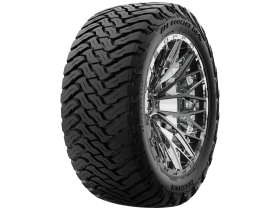Want to buy a car in Thailand? If you’re an expat living in Thailand and looking for a reliable alternative to the public transportation system, then this might be the option for you. We’ve compiled some useful tips that will help you shop for new and used cars in Thailand without much hassle. So let’s delve into the nitty gritty of buying a car in Thailand.
- Choose a type of car
Sounds like a simple step, right? Maybe if you’ve narrowed down to a specific model. But if you aren’t that much of a car person, then things might be a bit more difficult. Thanks to the internet, however, you can find lots of information on the right model that suits your needs. Whether looking for a new or used second-hand car, be sure to find more info about it through things like reading some reviews from trusted sources. You can also choose to ask for opinions from people in your circle or online to get an idea of the car you would like to buy.
- Choose a car dealer
Like choosing a car model, identifying the right dealer may appear easy, but the opposite may be true, especially if you’re new in Thailand. There are thousands of car dealers in Thailand, and finding the right one can be tough. There are also some that are just a scam preying on unknowing car buyers in Thailand. So dedicate plenty of time to getting to know more about not just car prices but some top car dealers near you.
You can also attend car events like the Bangkok International Motor Show, where you will get discounted prices on new cars. Moreover, you can inquire from friends on the best places you can walk in and buy a car near you. If you’re looking for used cars, then you can look at what are popularly known as car tents, auctions, and even search for platforms online. There are also plenty of legitimate dealers that sell new plus spare car parts, like this Nissan Center in Srinakarin.
Tip: Again, beware of car dealer scammers, especially when buying used cars in Thailand. In fact, don’t be in a rush to part with your cash without taking some time to do some research on the dealer!
- Buy your car!
The process of buying a car that you like in Thailand is relatively straightforward. For a new car, you will be requested to place a deposit (around 5,000 & 10,000 baht) after the verbal agreement with the dealer. New cars are only delivered on order in Thailand, thus the deposit is a “reservation” fee. Once you pay it, the dealer will tell you the delivery date of your vehicle. When it arrives, you pay the balance and you are good to go!
The process for buying a second-hand vehicle will take a bit longer. For starters, you will submit paperwork to transfer ownership. You will be asked to sign the Ownership Transfer Form or a Blue Book if no financing is required. However, if you’re acquiring the car through financing, the financer will keep the original copy of the Blue Book and provide a photocopy. As a general rule, always verify the details such as the amount paid and the name of the owner.
Tip: Buyers are advised to watch out when completing the transaction, especially with second-hand cars. Whether buying from the owner directly or a dealership, verify the details of the original owner, compliance with tax regulations, that the vehicle is not associated with any criminal records, stolen, sold to another person secretly.
Is the buying process the same for all people?
If you’re a foreigner, the process will look a bit different. You will have to provide your passport, non-immigrant visa, and work permit or letter of residence to the car dealer. When picking your new car, the license plate will be red but only temporarily. The Department of Land and Transport and dealership completes the registration process, which is usually six weeks or less, and changes it to white. When buying a second-hand car, the registered owner will be required to provide a passport, non-immigrant visa, work permit, household registration document called tabien baan if he/she is a Thai resident, the Blue Book, and a tax sticker from the Department of Land and Transport for cars to show the road-worthiness of the vehicle.
In conclusion, the process of buying a car in Thailand can be fairly straight-forward — if you know what you are doing! As a rule of the thumb, do it with caution and do your research. Take your time to find a car that’s worth your cash, deal with the right sellers, and follow all the legal process of buying completing the transactions. Happy buying!







